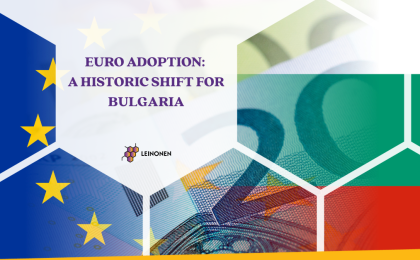Bonuses are an excellent way to incentivise employee performance, retain a loyal workforce, and solidify your reputation as a company that truly values its staff. Many employers in Bulgaria choose to adopt an employee bonus system, but understanding legislation around the taxation of employee bonuses is vital.
In this article, we will explore the latest rules and regulations, so you can reward your valued employees with confidence.
What Types of Bonuses can be Awarded in Bulgaria?
Bonuses can be discretionary (not guaranteed) or nondiscretionary (guaranteed as shown in employment contract). Discretionary bonuses are paid on a performance-based evaluation, and can vary from 0% to 200% of salary, depending on the degree of achievement of goals. Employers do not guarantee a minimum amount of the premium, nor do they owe advance payments during the year.
What Legislations Govern Employee Bonuses in Bulgaria?
In Bulgaria, employee bonuses are treated and taxed in the same way as salaries – 10% income tax, plus social security contributions. Since 2023, bonus income should be taxed retrospectively in the months in which the work was performed, not just in the last month. For example, if a bonus is granted at the end of the year for results achieved across the year, it must be taxed in every month (not just December).
Act. 6, para. 2 of SSC /in force from 01.08.2023/
“The income on which insurance contributions are due includes all remuneration, including accrued and unpaid or unaccrued and other income from employment. Remuneration relating to work done for the past time as quarter, annual and other bonuses is allocated to the days worked during which the work was done.”
Social Security and Health Insurance Contributions in Bulgaria
What are the Current Thresholds for Social Security and Health Insurance?
From January 2025, the minimum base salary for social security payments became BGN 1,077 per month (before adding years of experience). In April 2025, the maximum monthly social security income was raised from BGN 3,750 to BGN 4,130. Any gross pay (including bonuses) in excess of BGN 4,130 is not included in social security calculations.
How Much Social Security and Health Insurance do Employees Contribute?
13.78% of an employee’s gross monthly salary (above the minimum and up to the maximum social security income) goes towards social security payments. This is inclusive of bonuses, and is deducted and paid by the employer on behalf of the employee.
What Social Security and Health Insurance Contributions Must the Employer Make?
Alongside the employee contribution of 13.78%, employers in Bulgaria are required to contribute a minimum of 18.92% (maximum of 19.62%) to the employee’s social security. Similarly to the employee’s contribution, this is calculated based on the total social security income for the month, which includes bonuses.
What Tax Reliefs or Deductions can be Applied to Bonuses?
While tax reliefs are not directly related to bonuses, they can be applied to the overall amount of tax paid through the calendar year (including tax paid on bonuses).
- Child tax relief reduces annual tax base by BGN 6,000 for one child, BGN 12,000 for two children, and BGN 18,000 for three or more children
- Employees with a documented disability can receive a tax relief of BGN 66 net per month
- If an employee has gifted to an official listed charity, the amount gifted can be deducted from their annual tax base
- Any amounts paid for health insurance, social security and life insurance can also be deducted from the tax base
What are the Rules of Holiday Compensation in Regard to Bonuses?
Holiday compensation is calculated based on the previous month’s salary. If an employee received a permanent bonus the month before, the amount is included in the compensation calculations. One time bonuses are not included. Compensation for unused paid leave is only charged 10% tax (no social security). To find out more about holiday compensation and public holidays in Bulgaria, read our article here.
What Best Practices can Employers use to Ensure Correct Taxation of Bonuses?
Measures like clear internal policies, accurate payroll processing, timely reporting, and regular training help employers stay compliant with the latest regulations on the taxation of employee bonuses.
How can Leinonen Bulgaria Help?
With 14 years of experience in Bulgaria, Leinonen’s expert tax advisors are fully equipped to support employers with the taxation of employee bonuses. Our financial specialists have already assisted 1500+ satisfied customers, helping them successfully navigate ever-changing accounting laws across the European Union (EU).
Get in touch today to arrange a consultation and ensure your business is compliant with Bulgaria’s latest accounting, tax, and payroll regulations.





